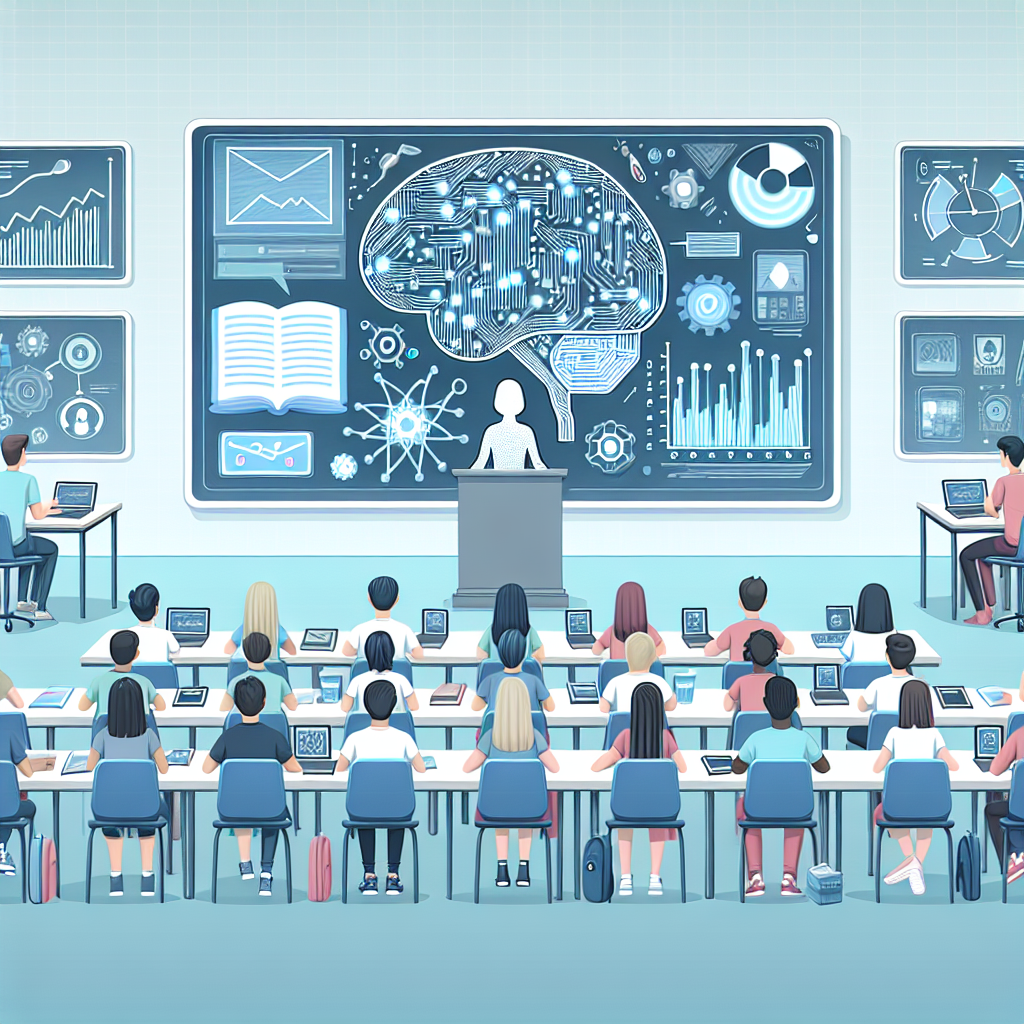AI and Data Analytics in Education
In recent years, artificial intelligence (AI) and data analytics have been transforming various industries, and education is no exception. These technologies are revolutionizing the way educational institutions operate, helping to improve student learning outcomes, streamline administrative processes, and provide personalized learning experiences. In this article, we will explore the impact of AI and data analytics in education and how they are reshaping the future of learning.
AI in Education
Artificial intelligence is being used in education to enhance teaching and learning experiences. AI algorithms can analyze students’ learning patterns and behaviors, providing insights that help educators tailor their teaching methods to suit individual student needs. For example, AI-powered learning platforms can offer personalized recommendations for study materials, quizzes, and activities based on a student’s learning style and performance.
AI can also automate administrative tasks, such as grading assignments and providing feedback to students. This frees up educators to focus on more meaningful interactions with their students, rather than spending hours on grading papers. Additionally, AI-powered chatbots are being used to provide instant support to students, answering questions and providing guidance on course materials.
Data Analytics in Education
Data analytics is another powerful tool that is transforming education. By analyzing large amounts of data, educational institutions can gain valuable insights into student performance, engagement, and behavior. This data can be used to identify at-risk students, predict their future performance, and provide targeted interventions to help them succeed.
Data analytics can also help educational institutions improve their operations and decision-making processes. By analyzing trends in enrollment, course popularity, and resource allocation, institutions can optimize their offerings to better meet the needs of their students. Additionally, data analytics can help educators track the effectiveness of their teaching methods and make data-driven decisions to improve student learning outcomes.
Benefits of AI and Data Analytics in Education
There are several key benefits of using AI and data analytics in education:
1. Personalized Learning: AI algorithms can analyze students’ learning patterns and provide personalized recommendations for study materials and activities, helping to improve student engagement and performance.
2. Improved Student Outcomes: By analyzing student data, educators can identify at-risk students and provide targeted interventions to help them succeed. This can lead to improved student outcomes and higher retention rates.
3. Streamlined Administrative Processes: AI can automate administrative tasks such as grading assignments and providing feedback to students, freeing up educators to focus on more meaningful interactions with their students.
4. Data-Driven Decision Making: Data analytics can help educational institutions track student performance, identify trends, and make data-driven decisions to improve teaching methods and student outcomes.
5. Enhanced Student Support: AI-powered chatbots can provide instant support to students, answering questions and providing guidance on course materials, improving the overall student experience.
FAQs
Q: How can AI and data analytics improve student engagement?
A: AI algorithms can analyze students’ learning patterns and provide personalized recommendations for study materials and activities, helping to improve student engagement and performance.
Q: Can AI replace teachers in the classroom?
A: While AI can automate certain tasks and provide support to students, it cannot replace the role of teachers in the classroom. Educators play a crucial role in providing personalized support and guidance to students that AI cannot replicate.
Q: How can data analytics help educational institutions improve their operations?
A: Data analytics can help institutions analyze trends in enrollment, course popularity, and resource allocation to optimize their offerings and better meet the needs of their students. Data analytics can also help educators track the effectiveness of their teaching methods and make data-driven decisions to improve student outcomes.
Q: Are there any ethical concerns associated with the use of AI and data analytics in education?
A: Yes, there are ethical concerns surrounding the use of AI and data analytics in education, such as data privacy, bias in algorithms, and the potential for misuse of student data. It is important for educational institutions to establish clear guidelines and policies to address these concerns and ensure the ethical use of these technologies.
In conclusion, AI and data analytics are revolutionizing education by providing personalized learning experiences, improving student outcomes, streamlining administrative processes, and enhancing student support. By leveraging the power of these technologies, educational institutions can better meet the needs of their students and prepare them for success in the digital age. It is essential for educators and institutions to embrace these technologies responsibly and ethically to ensure that the benefits of AI and data analytics in education are maximized.

